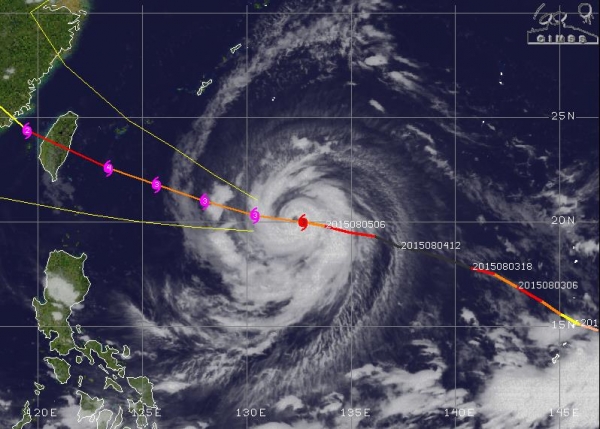 |
| Photo Média |
Toujours, ayant remporté ce livre depuis les rayons dans la localité, à la fois se trouvant dans les environs de Milan Kundera, nous nous enfonçons dans les détails abstraits surtout des arts touchants à tous les aspects de nos vies de tous les jours. Typiquement, au début de son roman, on se souvient des paroles entre le compositeur Schönberg et un journaliste il y a beaucoup d’années qui faisait prononcer une question devant l’artiste sur la possibilité des forces créatrices dans l’artiste ayant été éteints par le processus de l’émigration pendant ce temps aux EE.UU. Ceci illustre les qualités et complexités de l’écrit littéraire de Kundera en français et provoque son analyse encore du siècle saignant du XXème – la Guerre d’Espagne en 1936, les deux Grandes Guerres, l’invasion Hongrois en 1956, la réaction des Yougoslaves en 1948 contre Staline – et les résultats de l’effondrement communiste en 1989 – 91. Le communisme en effet dans quelques esprits fût un mouvement contre les personnalités fascistes du siècle et leurs amis. Avec ce fondement, le roman « L’Ignorance » commence son déroulement avec Irena, praguoise (Prague, peut – être une ville inconnue ou en cachette, guettant, sadique, gênante, typiquement communiste et pas usuel selon l’Occident), qui allait émigrer en France à Paris (tellement un rêve en vue de toutes ses difficultés et obstacles de son existence.)
Le communisme était anathème à l’émigration volontaire, et cela parmi d’autres thèmes du déroulement romancier de Kundera sont trouvés dans tous ses textes. Le mari d’Irena, Martin, est mort ; elle a d’enfants, ses habitudes et comportements, le bon humeur, mais ne s’arrange guère à Prague. Dès 1989 à Roissy, elle rencontre Josef en sécurité. Un homme convenable néanmoins une façon de vivre et situation soupçonneuses. Une fois avec Gustaf, nous subissons non aux images de Le Clézio typiques, mais pratiques et vrais à la vie selon Irena, une femme mûre et chou pour son rencontre, un agent de l’aéroport de Paris. Il soit à la fois égoïste, indiscret, capable d’aventures, bohème comme elle, libertin, solitaire, quoiqu’insolite. A partir de son mari Martin, et l’agent de sécurité Josef, elle suivit d’autres voies avec leurs propres histoires provoquant des rappels et souvenirs des tanks russes à Prague en 1968. Au court, et selon Kundera de l’intérieur de l’Europe de l’Est, le communisme surtout fût un gros gaspillage du temps, de l’énergie et matériel et ressources, derrière dans la brume des mémoires des peuples, au passé (ici employant les mots Kundera), invitant en plein ennui la nausée et l’irritation des peuples, surtout des Tchèques dans leurs efforts à complètement oublier les Russes et la Russie. La vie sous le communisme était au – dessus de tout impossible pour les filles et les femmes, toujours vivants les vies très peu assurées et dont les raisons ne sont jamais admises ni mentionnées. Irena, après Josef trouve Gustaf, soi – même une vie très peu assurée, disant peu de paroles sauf les mots clefs et importants, et il a l’embarras devant les grands yeux d’Irena tout le temps ils sont ensembles. La boîte de Gustaf est à Prague et l’aventure s’ensuit pendant les efforts tenants d’Irena à émigrer en France à Paris. Elle suivit une fois ses compatriotes en hiver en séjour à la montagne et tombe malheureusement et par hasard gelée, aboutissant à l’hôpital où l’on a dû couper une oreille. Les femmes, toujours héros chez Kundera, de remords subissent habituellement à ces choses dans ses textes.
De façon typique, encore chez Kundera, un lien biographique s’apparaît dans les interstices du texte – celle de Jonas Hallgrimsson, un personnage Islandais ; et après trop consenti pour sortir de son pays apparemment, elle revoit Josef qui ne se souvient guère d’elle. Irena apprend de la mort de la femme de Josef sans notion ni matérielle ni temporelle ; ce qui présenta des problèmes à la mémoire de la vie de cette femme malgré la fin de certaines difficultés pour Josef. Josef soi – même est ensuite le sauveur d’Irena qui subit des difficultés elle – même dès le décès de Martin. Tout revient à la musique de Schönberg, une commémoration significative et permise en public de l’écroulement du communisme. Le couple fait une fête avec une bouteille du vin bordelais, et l’alcool est devenu un thème de leurs relations en même temps que la vie somnolent des rêves confus de la fin de l’Östpolitik. Une fois leurs relations rompues, une fois Josef est le revenu à démontrer et mettre en relief l’dée de l’amour au – dessus de tout, néanmoins le rôle y trouvé de l’alcool. Le valse final du roman se trouve lors une narration d’un coup sexuel pour le couple ; banal et naturel, dans la chambre de Gustaf où le lendemain il l’abandonne de façon typique pour un homme de son âge – elle continua le sommeil dans son lit au moment de son départ pour l’avion à Roissy aéroport. Qu’il filait à l’avion et qu’elle dormait parallèlement dans son lit, dans sa chambre, indique une façon de vivre à Paris. Vous savez ce – que c’est?









